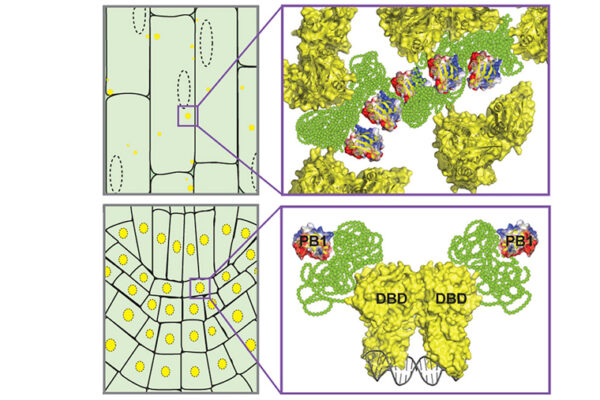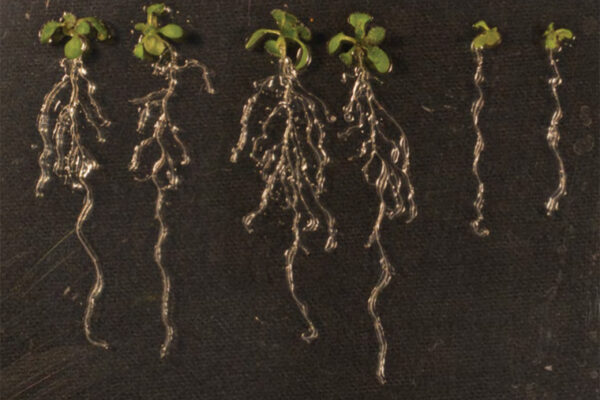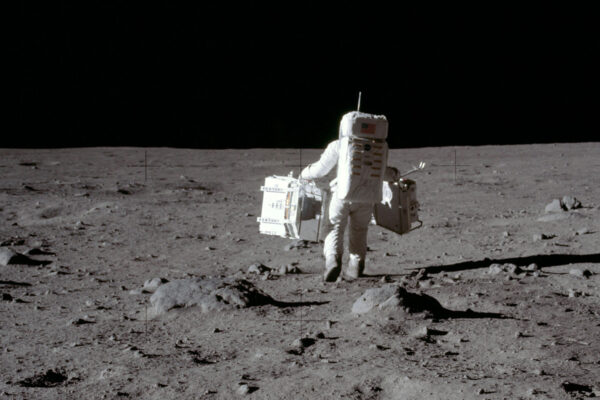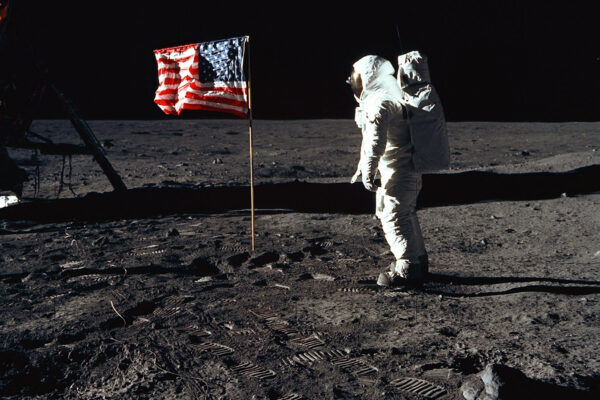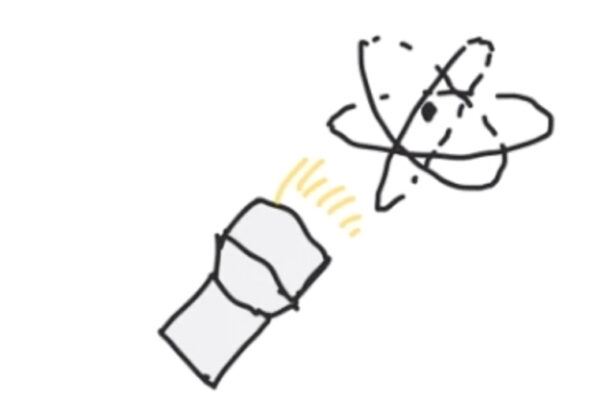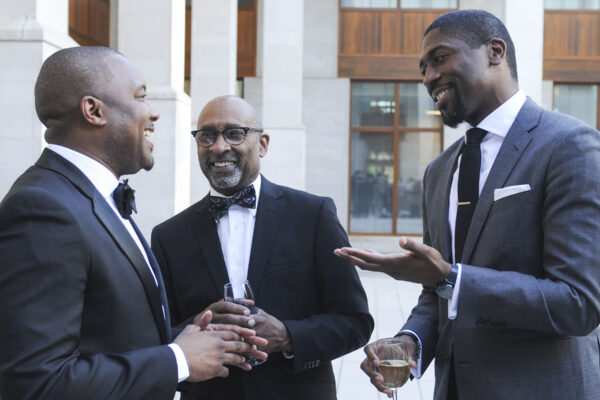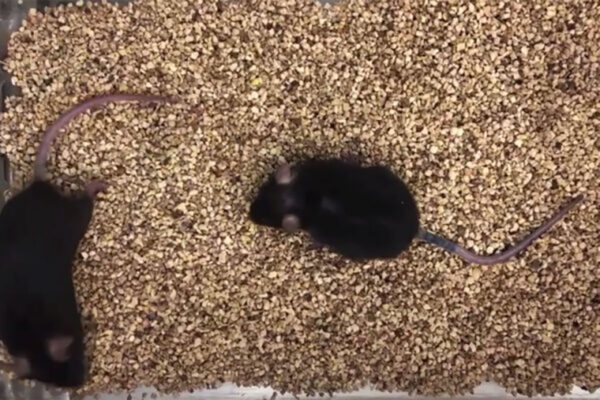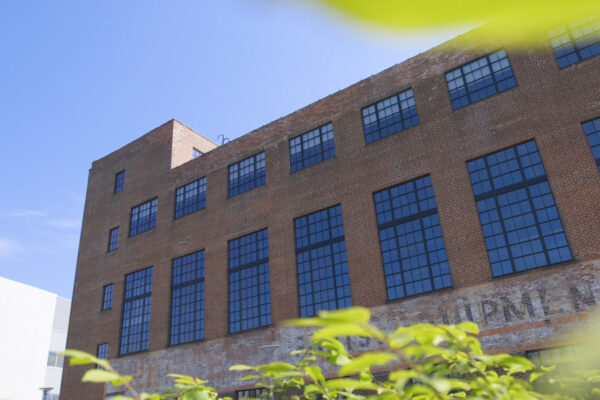Sticky proteins help plants know when — and where — to grow
When it comes to plant growth and development, one hormone is responsible for it all: auxin. New Washington University in St. Louis research has uncovered a mechanism by which it can affect a plant in a myriad of ways.
Introducing In St. Louis
Washington University in St. Louis is proud to launch a new annual project designed to explore — through the experiences, scholarship, work and voices of St. Louisans — what it means to be in St. Louis today.
Putting the brakes on lateral root development
Biologist Lucia Strader in Arts & Sciences discovered a cellular transporter that links two of the most powerful hormones in plant development — auxin and cytokinin — and shows how they regulate root initiation and progression. Understanding why and how plants make different types of root architectures can help develop plants that better cope with distinct soil conditions and environments.
Old rocks, new science: What the moon is still teaching us
In September 1969, Washington University in St. Louis scientists were among the first to receive samples collected from the historic Apollo 11 moon mission. At this year’s Lunar and Planetary Science Convention, a student, a faculty member and an alum remind us of the value of these samples and share cutting edge research on decades-old rocks.
On Apollo legacy, and why we should return to the moon
Humans have already learned much from the very first moon samples collected by the Apollo program astronauts. As NASA plans for its next manned mission by 2024, a leading lunar expert shares his science priorities for the return: “We need to learn how to live and work off Earth and beyond the low Earth orbit.”
Characterizing the ‘arrow of time’ in open quantum systems
Even in the strange world of open quantum systems, the arrow of time points steadily forward — most of the time. A video details new experiments conducted at Washington University in St. Louis that compare the forward and reverse trajectories of superconducting circuits called qubits, and find that they largely tend to follow the second law of thermodynamics. The research is published July 9 in the journal Physical Review Letters.
Celebrating 50 years of African and African American Studies
African and African American Studies, a program born out of student protest that recently became a department, celebrates its 50th year.
Aging delayed in older mice given blood component from young mice
Researchers at the School of Medicine have shown that supplementing older mice with an enzyme from younger mice extends life spans in the older ones.
What does war sound like?
Musicologist Todd Decker, of Arts & Sciences and author of “Hymns for the Fallen: Combat Movie Music and Sound After Vietnam” (2017), examines how films such as “Platoon,” “Apocalypse Now,” “Saving Private Ryan” and “The Hurt Locker” shape how audiences view soldiers, veterans and the experience of war.
Reimagining 4340 Duncan
The $44 million, 15-month renovation of 4340 Duncan in the Cortex Innovation District is nearly complete, and demonstrates the connection, collaboration and community partnership taking place around innovation and entrepreneurship in the St. Louis region.
View More Stories
